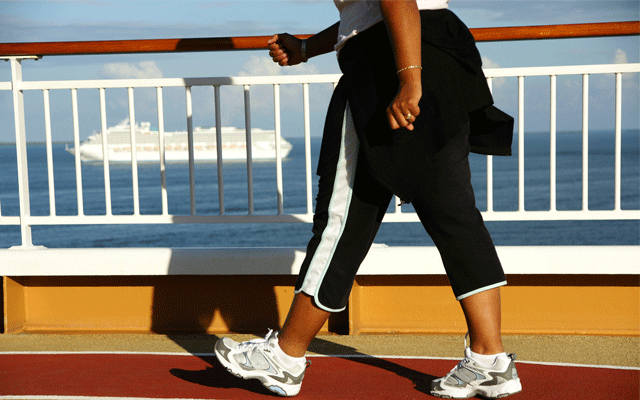
Fan Chung (National Heart & Lung Institute, Imperial College London, UK) and colleagues report in The Lancet that even short-term (two-hour) exposure to tiny particles of soot or dust found in traffic fumes on busy roads appears to thwart the benefits of walking on the heart and lungs among older adults (aged 60 or over). They report that short-term exposure to pollution is associated with stiffening of the arteries and impaired lung function, and strengthens the case to reduce vehicle emissions so that everyone can enjoy the health benefits of physical activity.
Chung et al reviewed data for 119 older adults (aged 60 or over), including 40 healthy volunteers, 40 individuals with stable chronic obstructive pulmonary disease (COPD), and 39 with stable ischaemic heart disease. Participants were randomly assigned to spend two hours walking along the western end of London’s Oxford Street where traffic is restricted to diesel-powered buses and cabs, or through a traffic-free section of Hyde Park, London. Three to eight weeks later, participants did the other walk. All participants had abstained from smoking for the past 12 months, and continued any medications as usual throughout the study. Levels of traffic-related air pollutants (black carbon, particulate matter, ultrafine particles, and nitrogen dioxide) and measures of lung function and cardiovascular responses were taken before and during each walk.
In healthy participants, walking in Hyde Park led to an improvement in measures of lung capacity (average 7.5% increase in FEV1 [the maximum amount of air that can be exhaled in one second] at five hours after the start of the walk) and arterial stiffness (5% decrease in pulse wave velocity on average after three hours) that persisted for up to 26 hours. In contrast, walking on Oxford Street led to only a small transient increase in lung capacity, and substantial worsening of arterial stiffness (average 7% increase in pulse wave velocity) associated with greater exposure to black carbon soot and ultrafine particles from diesel exhaust.
The detrimental health effects of pollution were particularly marked in participants with COPD who experienced a narrowing (obstruction) of the small airways—reporting more respiratory symptoms including cough, sputum production, shortness of breath, and wheeze—and increased arterial stiffness after walking in Oxford Street compared with Hyde Park. These harmful effects were associated with increasing exposure to black carbon soot and ultrafine particles, supporting the view that fossil fuel combustion particles are particularly toxic to individuals with cardiovascular and lung disease.
Chung says: “Our findings indicate that in traffic congested streets, like London’s Oxford Street, the health benefits of walking do not always outweigh the risk from traffic pollution. However, this should not be seen as a barrier to many older people for whom walking is the only exercise they do. We suggest that, where possible, older adults walk in parks or other green spaces away from busy roads.”
Additionally, further analyses found that pollution levels on Oxford Street resulted in worsening arterial stiffness in participants with ischaemic heart disease not using cardiovascular drugs, but had little effect on those taking medication, suggesting that these drugs might have protective effects. The authors state that more research is needed to confirm this finding. “Our data indicates that taking medications which improve arterial stiffness such as statins, ACE inhibitors, and calcium channel blockers may well reduce the adverse effects of air pollution in individuals with ischaemic heart disease,” Chung comments. [
In the paper in The Lancet the authors conclude: “Our study provides a clear message to improve the quality of the air we all share. In London, the introduction of the low emission zone has had little impact on particulate matter levels. More radical solutions, such as recently announced to phase out diesel-powered black cabs and replace them with battery powered electric alternatives, are needed.”













